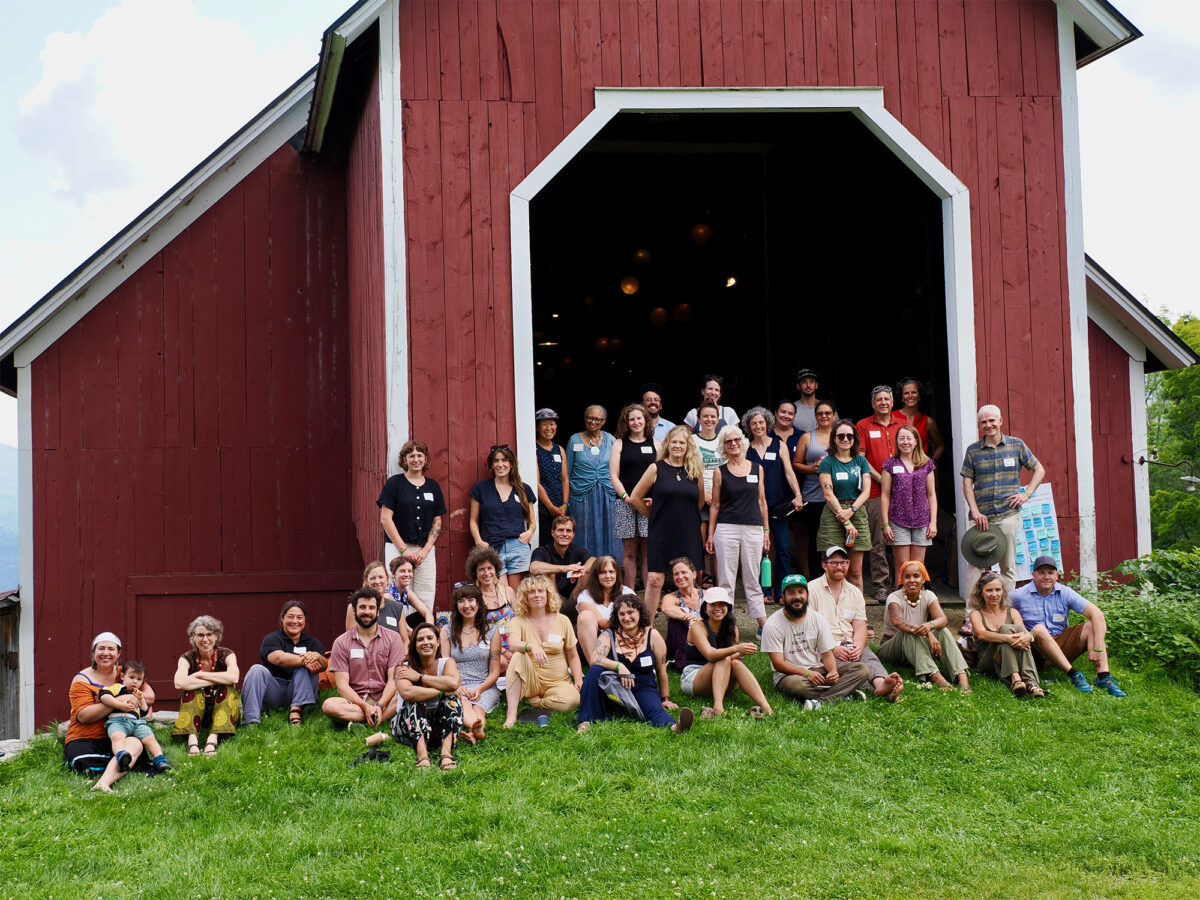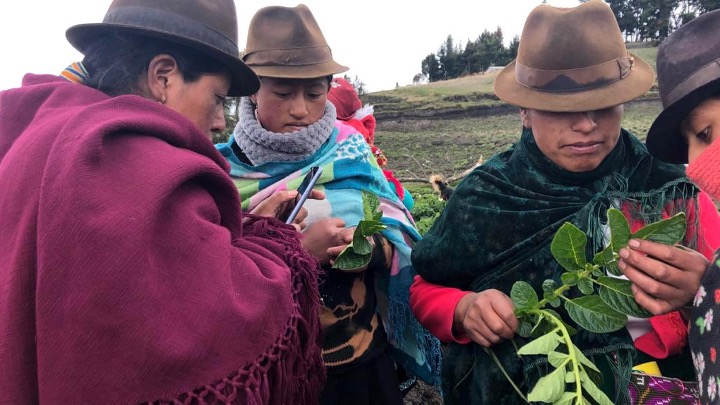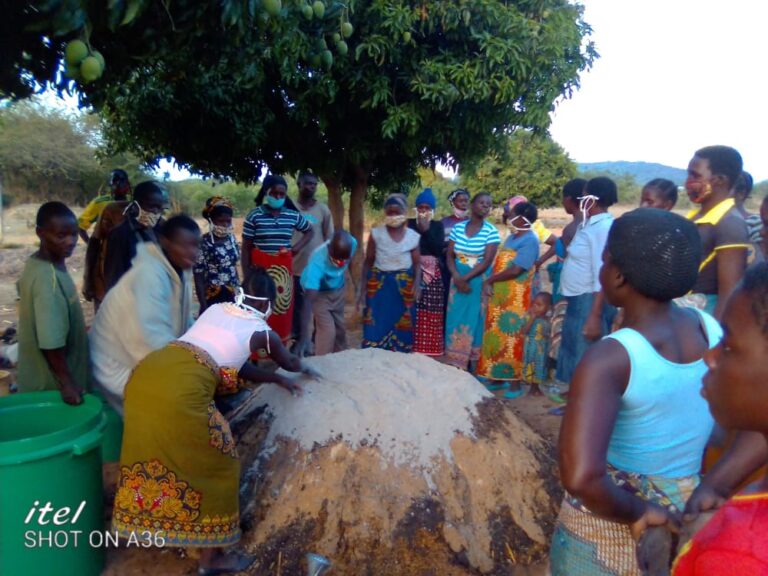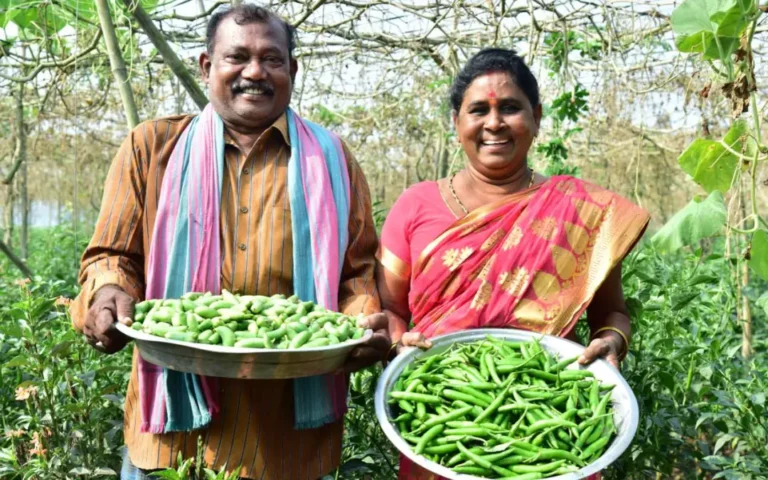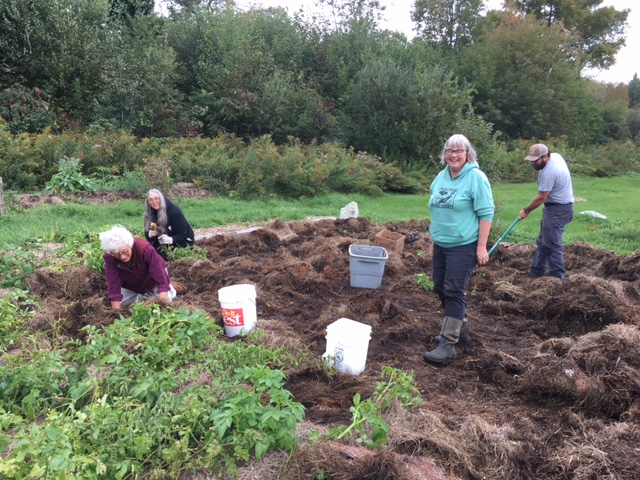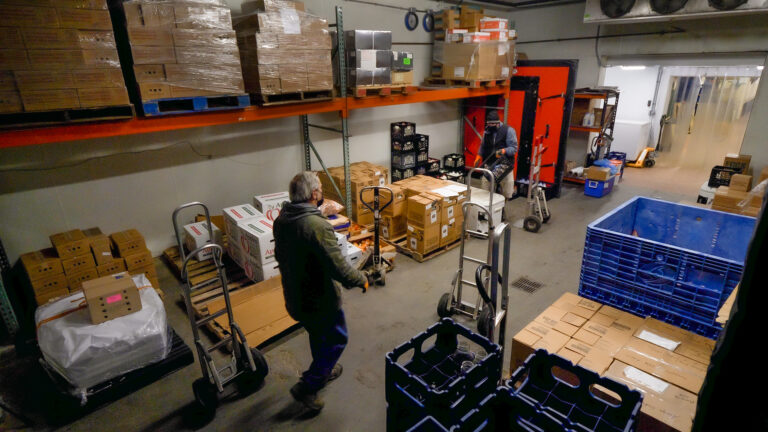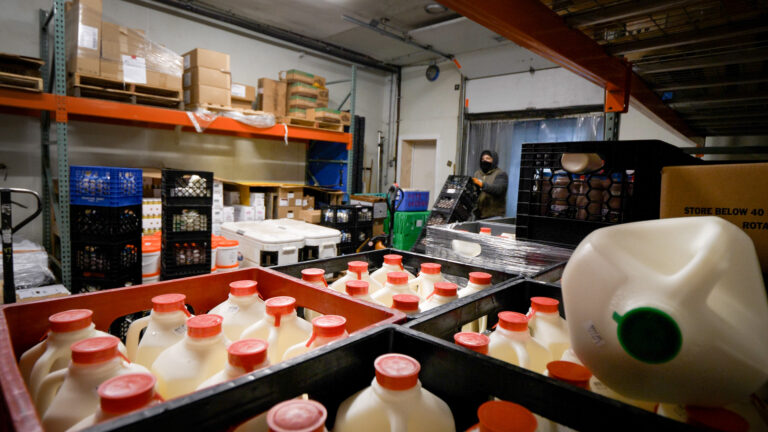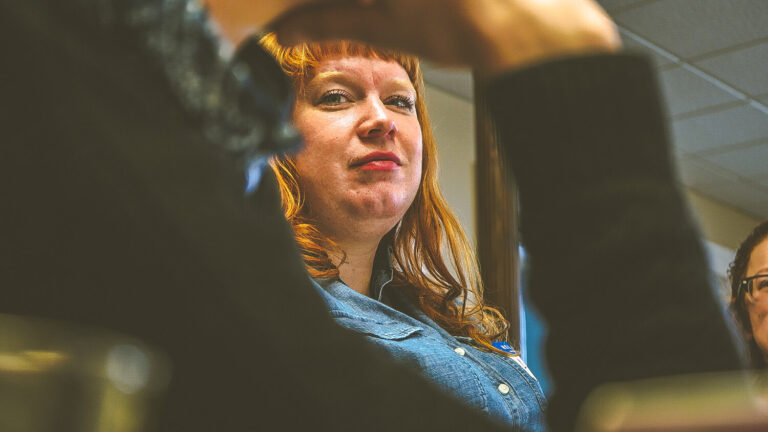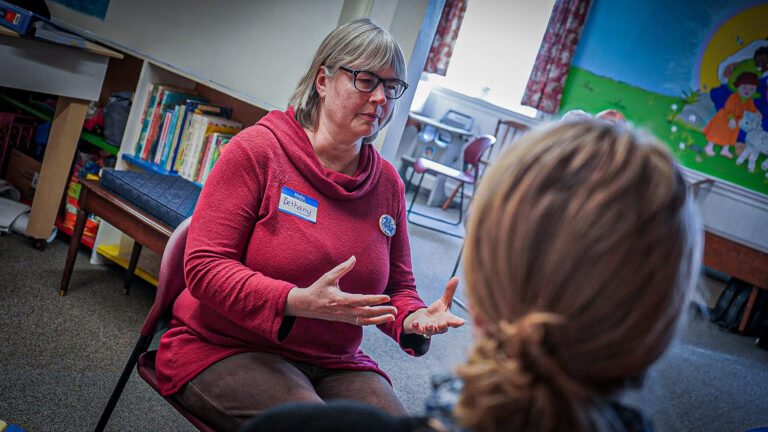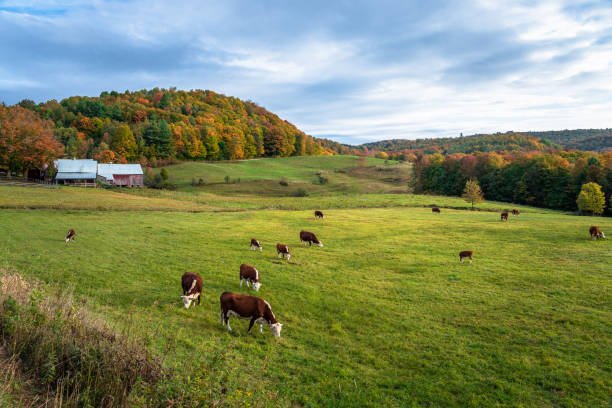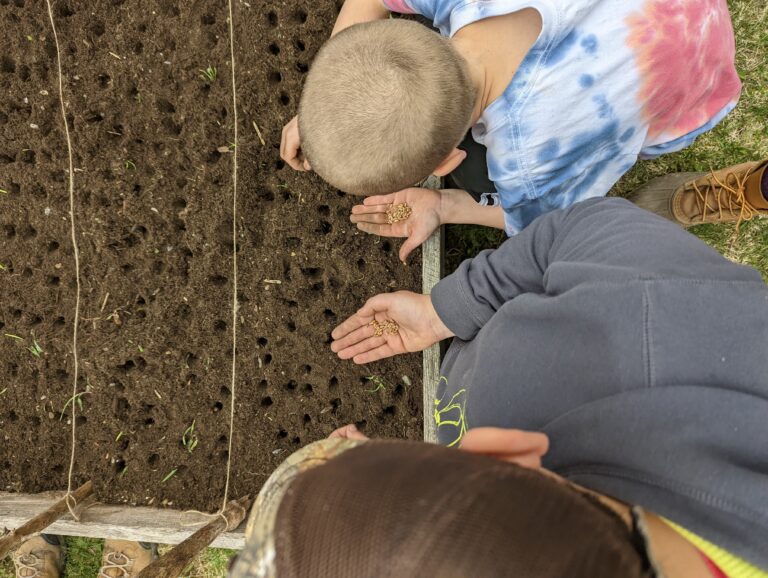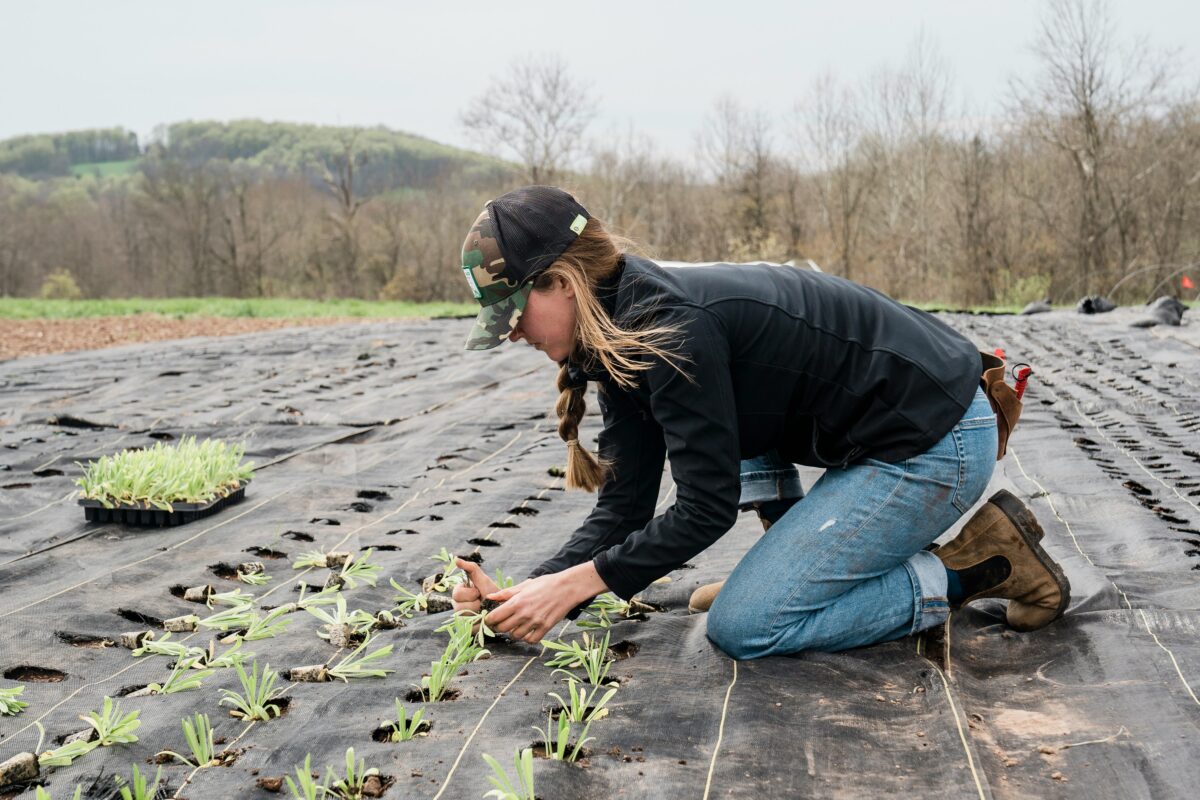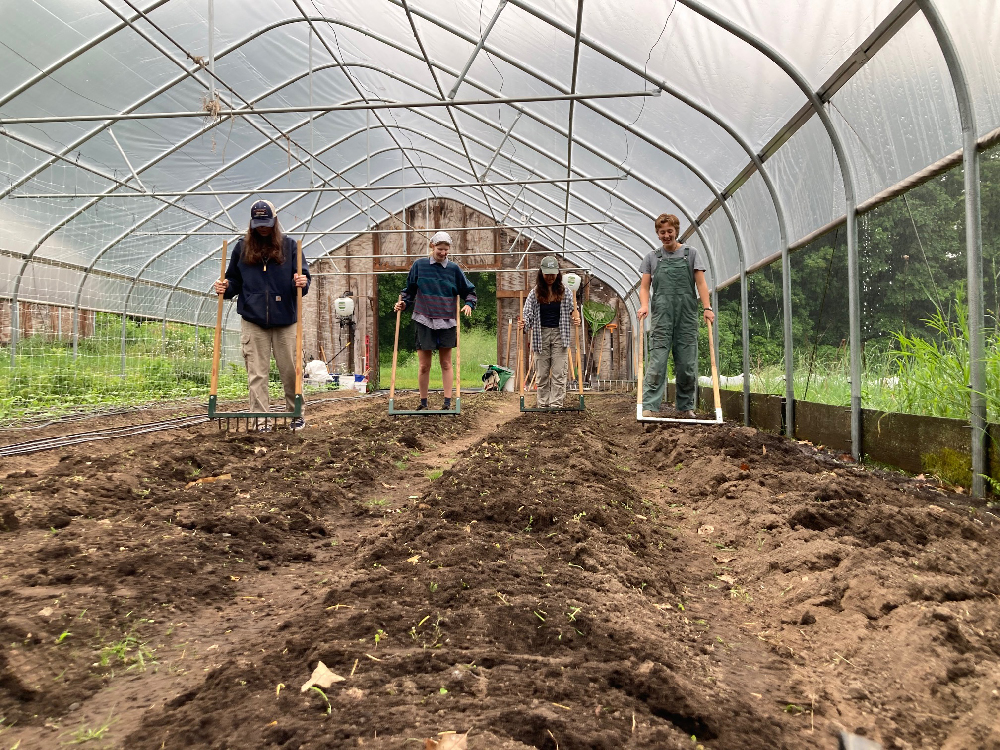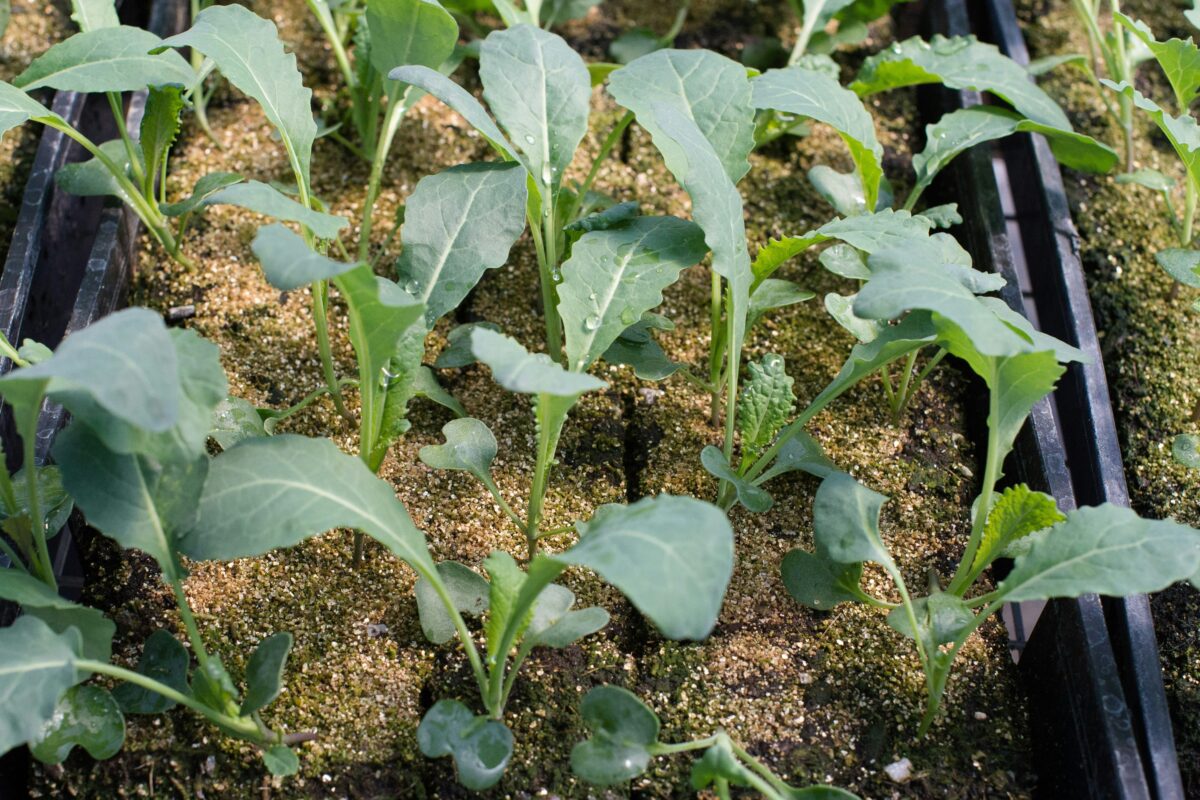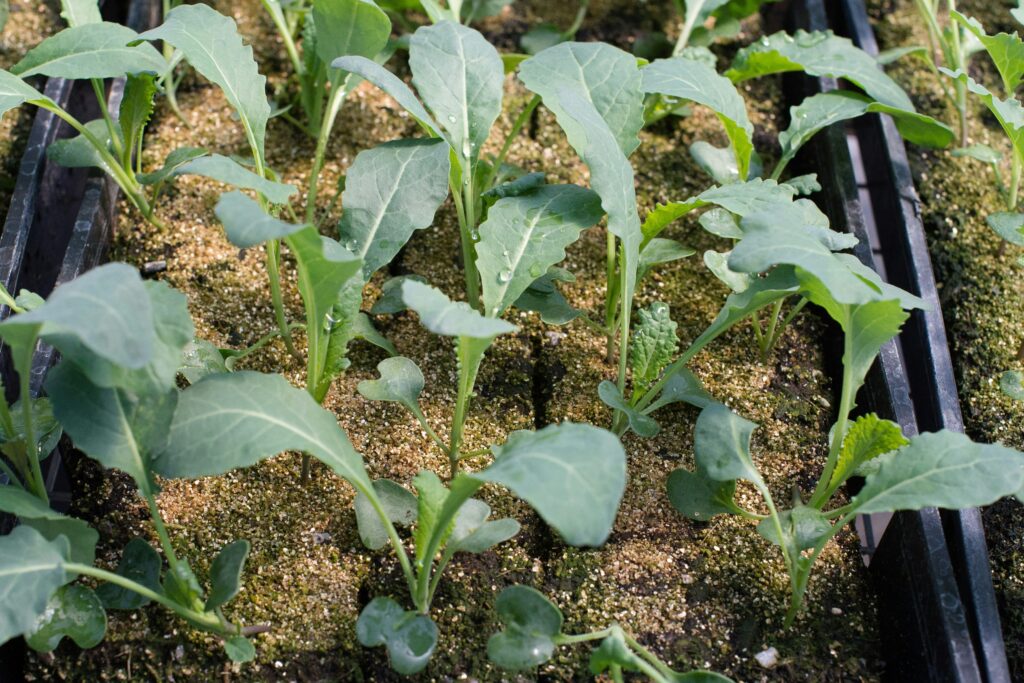Among the bucolic hills of Knoll Farm in Waitsfield, Vermont, 45 researchers, organizers, policymakers, and civil society actors gathered for a workshop in pursuit of building a just and sustainable food system, work that is more critical than ever.
Organized by the UVM Institute for Agroecology, Food Solutions New England, and Agroecological Transitions for Territorial Food Systems (ATTER) the insightful workshop, “Weaving Just and Sustainable Food Futures: Regional Approaches and Strategies,” was held on July 15 and 16. The focus centered on governance, power, and equity in regional food systems and leveraged participants’ experiences, case studies, and knowledge to explore transformative concepts such as the Right to Food, Agroecology, Food Sovereignty, and a Just Transitions.
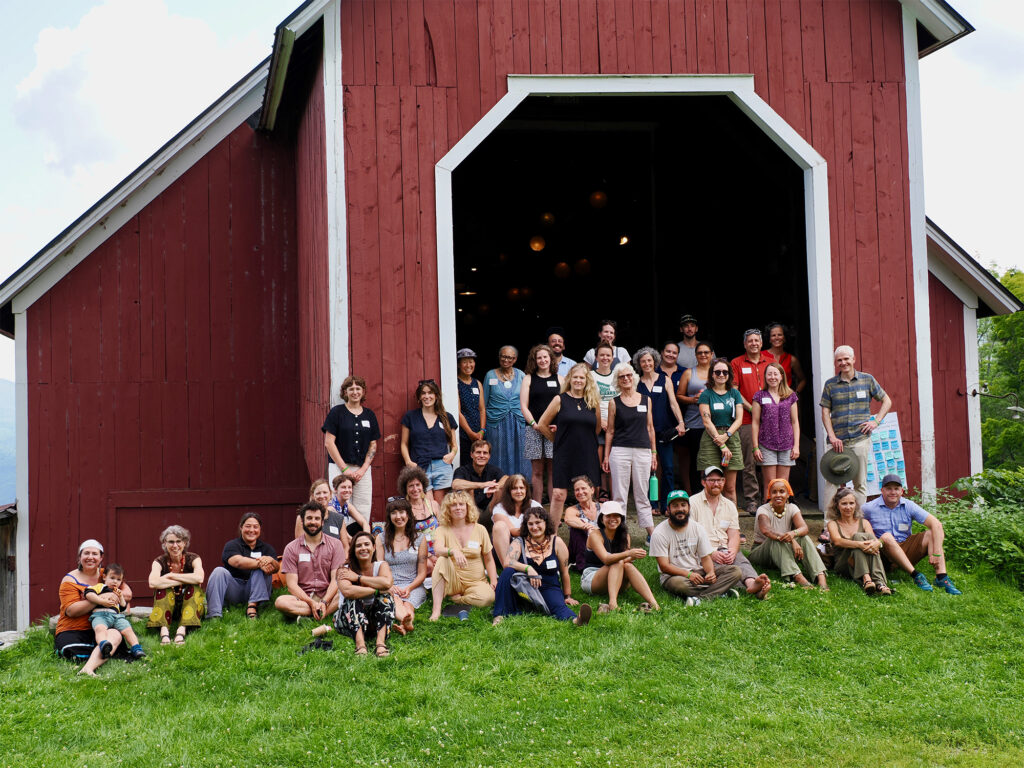
Workshop participants gathered in front of the historic barn at Knoll Farm. The Knoll Farm Barn was salvaged, taken down, moved piece by piece by oxen and resurrected on its current location in 1923 by the McLaughlin family.
“Regional approaches to organizing food systems have received a lot of attention and we are interested in centering these concepts and their focus on holistic approaches to systems change, human rights, equity,” says Colin Anderson, associate director of the Institute of Agroecology at University of Vermont. “In this way, we can address the root problems that are undermining sustainability and justice in the food system and work towards the social and political transformation needed to foster just and sustainable food systems”.
Specifically, the workshop delved into regional governance across all of its discussions, emphasizing multi-actor and cross-sector coordination. As discussed, this approach leads to new institutional arrangements, visions, policy changes, and markets while fostering democracy, justice, innovation, and strengthening civil society. A particular focus was placed on understanding issues of governance, power, and equity in the region through novel research approaches that can be leveraged by on-the-ground actors to effect change.
While New England was the focal region, the workshop included case studies, perspectives, and participants from other geographies. Several case studies from the International ATTER Project, which explores efforts to scale up agroecological transitions in European, American, and Brazilian territorial food systems, were discussed.
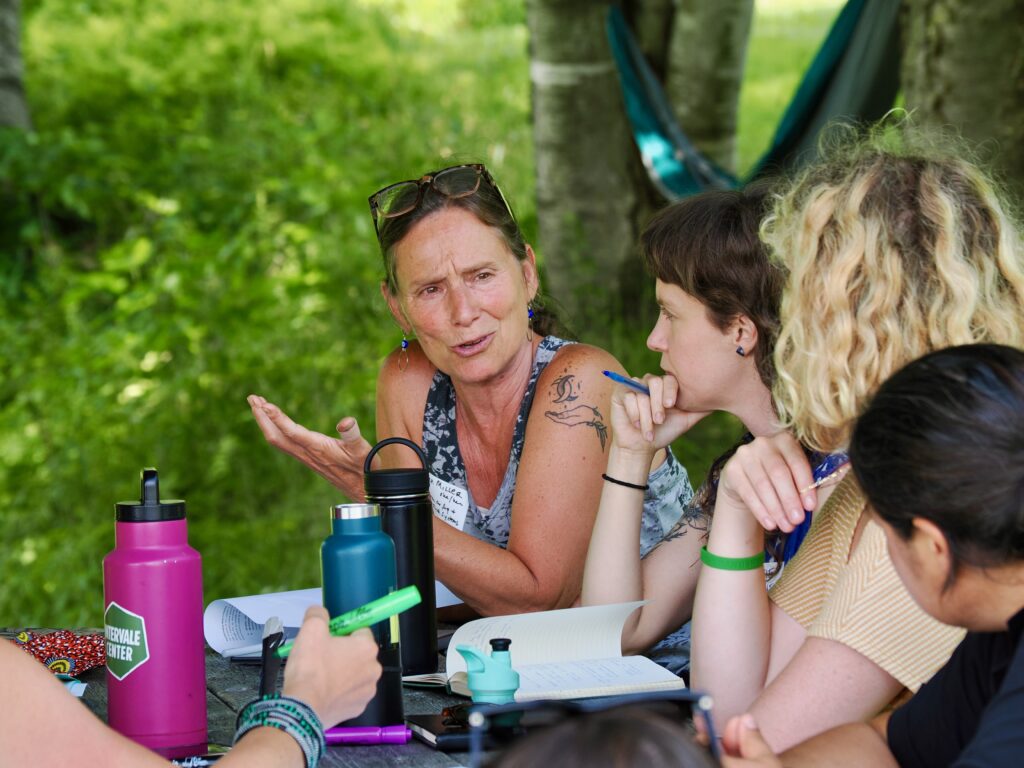
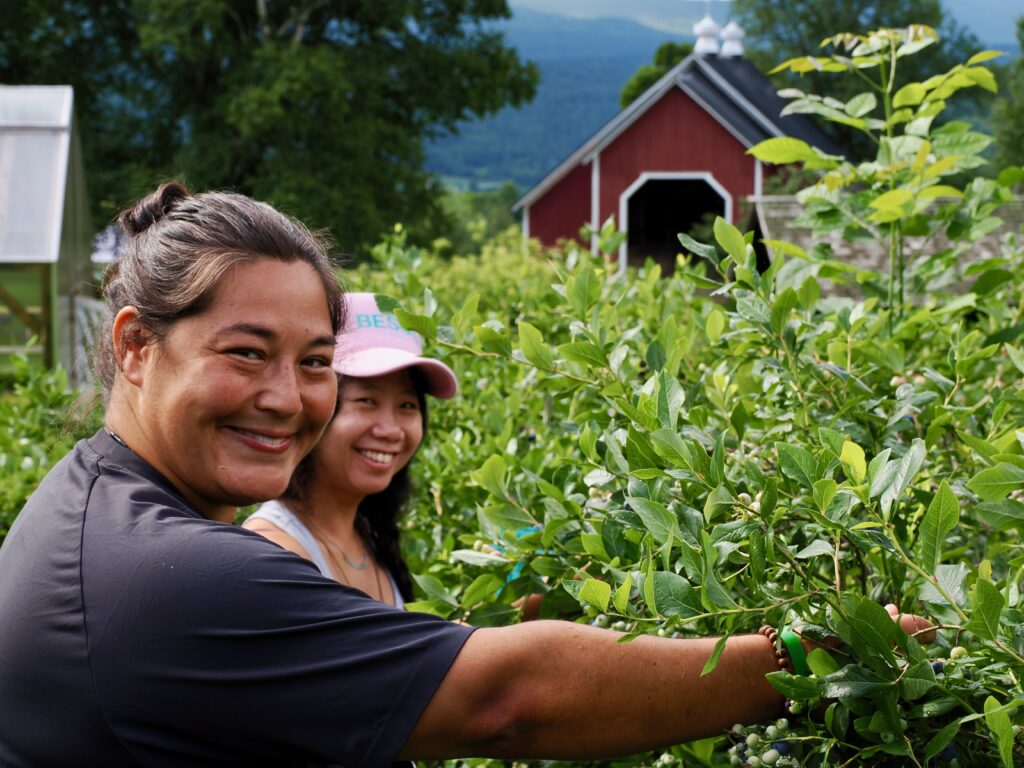
Left: Fran Miller, senior staff attorney and adjunct faculty member at the Center for Agriculture and Food Systems (CAFS) at Vermont Law School (VLS), speaks with Katie Horner (center), Postdoctoral Associate at the UVM Institute for Agroecology. Right: Emilie Inoue, Plant Health Section Chief with the Vermont Agency of Agriculture (right), picks organic blueberries at Knoll Farm with Theresa Ong, Assistant Professor of Environmental Studies at Dartmouth College.
Over the two days, participants focused on Co-learning, Connecting, and Collaborating. They deepened their understanding of transformative approaches to regional food systems with one another; built and strengthened their relationships across the region and the country, including dialogue, food, outdoor activities, and field visits; and explored opportunities for new partnerships, projects, publications, and lines of work.
For example, we will be holding an online seminar on regional food systems where Claire Lamine and Karine Nunes will be presenting about work on territorial food systems and agroecology in France and Brazil (sign up for our newsletter to receive notices about this event and others like it).
Among the notable outcomes was the design of a new project on food democracy experiments. This initiative brings together five ATTER partners: National Research Institute for Agriculture, Food and the Environment, France (INRAE), the University of Vermont (UVM), Urgenci International Network for Community Supported Agriculture, Food First Information and Action Network (FIAN), and Federal Rural University of Rio de Janeiro (UFRRJ), plus Food Solutions New England (FSNE), thanks to the exchanges held during the workshop. Claire Lamine, the principle investigator of this project explained, “This project will carry out action research on efforts in Brazil, the USA and France to deepen democracy in food systems by creating new ways for citizens to participate in designing and making decisions on policy and programs that shape their food systems.”
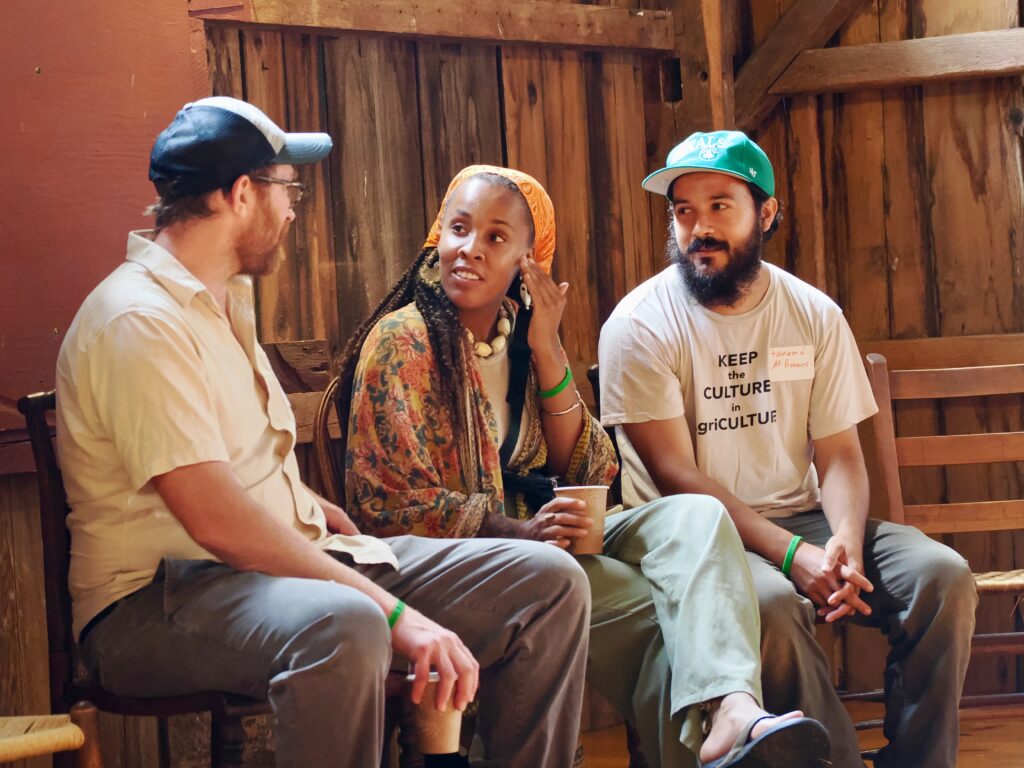
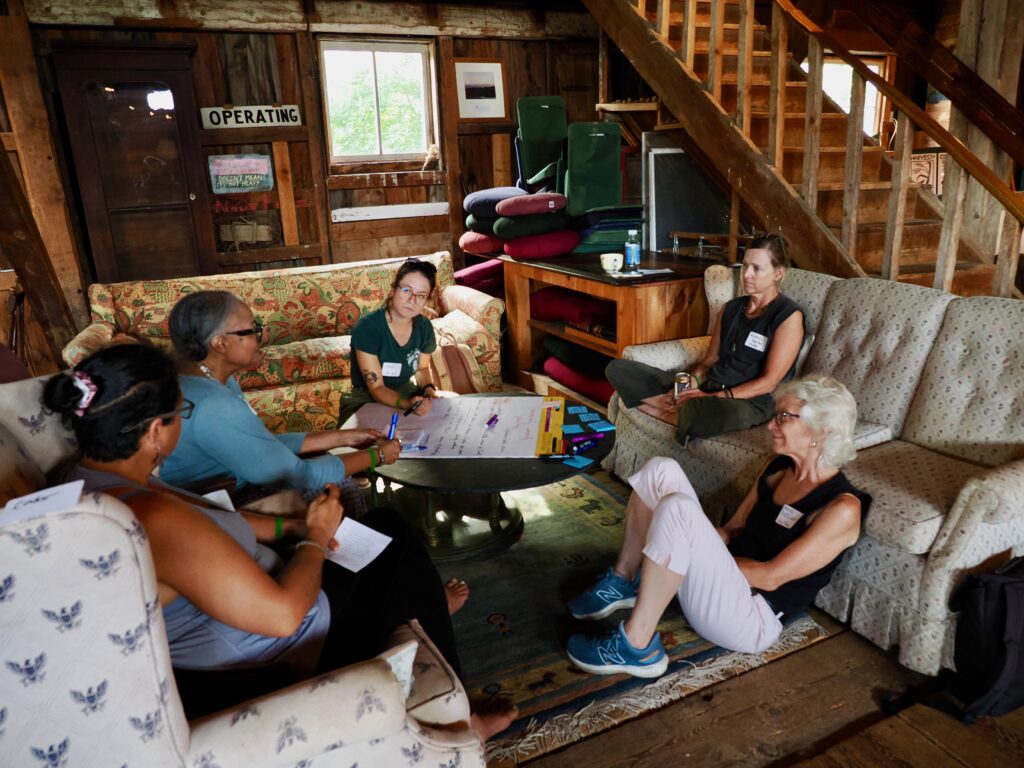
Left: Graham Unangst-Rufenacht, policy director for Rural Vermont (left), speaks with Amber Tamm, head florist at the Catamount Farm, and tanamá varas, Catamount Farm Manager and FTP Lead Instructor. Right: Participants meet in the barn at Knoll Farm for a breakout session. (Left to right: Ulum Pixan Athoil Suk’il, Education Director at NOFA/Mass (Northeast Organic Farming Association); Karen Spiller, Thomas W. Haas Professor in Sustainable Food Systems and Affiliate Assistant Professor in the Social Work Department at University of New Hampshire, Durham; Karine Nunes, PhD candidate in sociology at the School of High Studies on Social Sciences in France; Karen Nordstrom, Policy Program Co-Director, Food Solutions New England; and Anni Bellows, Professor of Food Studies and Graduate Program Director at Syracuse University.
Organizing Committee and Support
The workshop was organized by Colin Anderson, UVM Institute for Agroecology, Molly Anderson, Middlebury College, Karine Nunes, INRAE and Monts d’Ardèche Regional Natural Park (France), Karen Nordstrom, Food Solutions New England at the University of New Hampshire Sustainability Institute, and Claire Lamine, INRAE (France).
The event received financial support from:
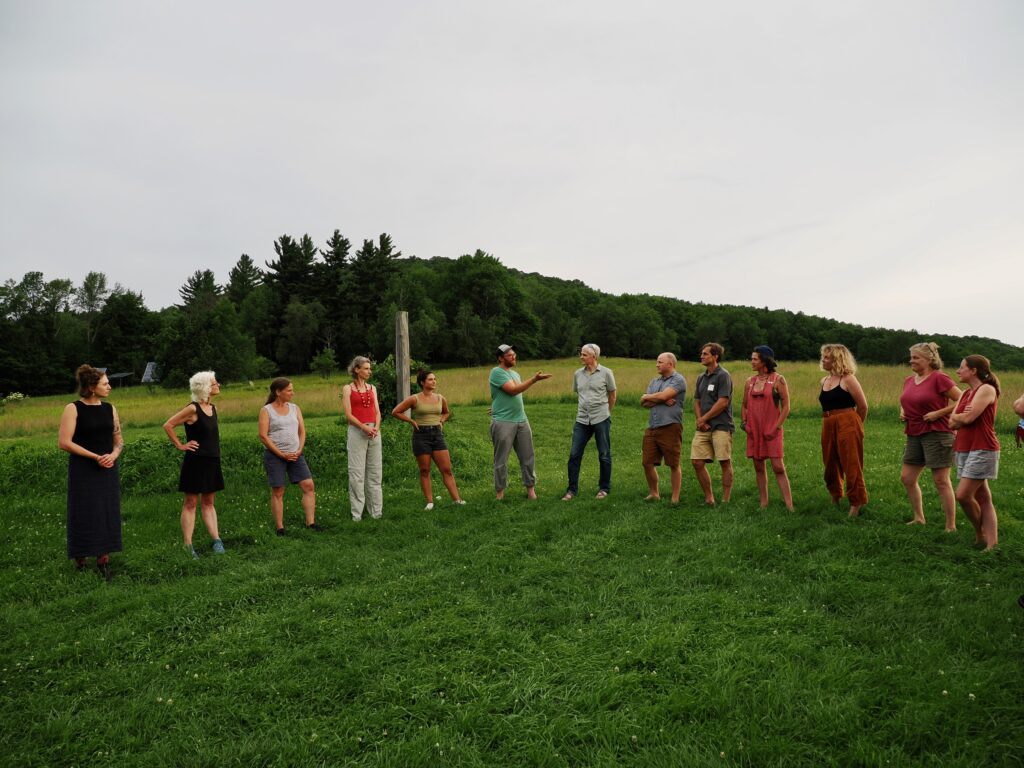
Participants gather on Tuesday evening for a final round of reflections before heading home.

